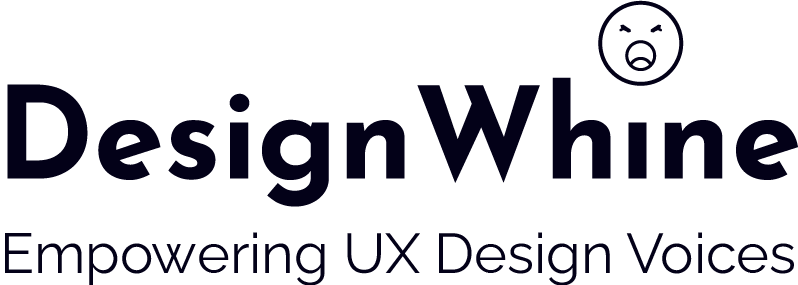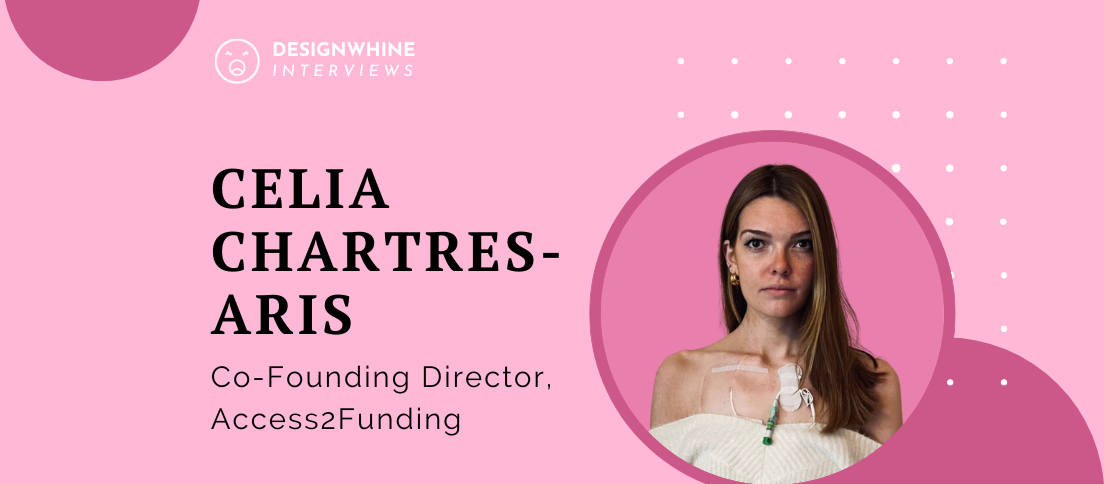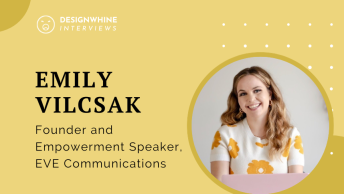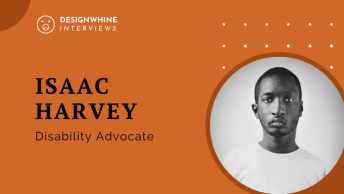Celia Chartres-Aris, a distinguished multi-award-winning campaigner, lobbyist, investor, and policy designer, takes center stage in this exclusive interview. Founder of several disabled-led organizations and named on the 2023 Global Diversity Leaders list, Celia has dedicated her life to ensuring that disabled individuals are at the forefront of legislative development. Born with multiple disabilities, including Loeys-Dietz Syndrome, Marfans, POTS, and intestinal failure, Celia shares her journey of breaking down systemic ableism, discrimination, and stereotypes. In this enlightening conversation, she sheds light on the integral role of accessible technology in her daily life, emphasizing the transformative power of digital products and the ongoing challenges that product designers need to address for a more inclusive future. Join us as Celia discusses the importance of putting disability at the heart of design, embracing an accessibility ethos, and advocating for the fundamental right of accessibility for all.
Could you please introduce yourself and share some background about your disability?
My name is Celia Chartres-Aris, I am a multi-award winning campaigner, lobbyist, investor and policy designer, having also founded several disabled-led organisations focused on the development and advancement of policy, ensuring that disabled people are at the heart of legislation. This year I was named on the 2023 Global Diversity Leaders list and am featured on the 100 most influential disabled people list. I work closely with organisations, charities and the Government, advocating, designing new legislation and policies, and amending existing legislation and policies, for the improved equity of representation, inclusivity, accessibility and opportunities for disabled people. Over the years this has included working with brands such as; Cola, Apple and Linkedin, and partnering with national and international Governmental bodies such as; The House of Lords, The European Union, The United Nations, Westminster and Downing Street. Alongside being an advocate for inclusive law and policy, I am also an active campaigner for diversity, intersectionality and inclusion, regularly speaking to and advising organisations and charities around the world, such as; Virgin, Amazon, BHF and British Banking. I am the Co-founder of the first policy unit in the UK which focuses on putting disability at the heart of Westminster, and Access2Funding which brings together the global investment market and is implementing inclusive practices across the deal flow, which is significantly improving opportunities and participation for disabled entrepreneurs. My work has been featured by organisations such as Forbes, The Financial Times and AwareNow. I was born with multiple disabilities including Loeys-Dietz Syndrome, Marfans, POTS and intestinal failure, currently due to multiple organ-failure I live with a permanent central line in her chest receiving daily blood infusions and complete artificial nutrition. I have never known my life without my disability, and I take pride in my disabled identity, working hard to break down systemic ableism, discrimination, and archaic stereotypes about the talents, potential, and ability of disabled people.
In what ways does your disability influence your daily life, particularly when it comes to using digital products or services?
My disability has shaped and influenced my life more than comprehension, my work, my home life, my social life – everything is guided by my disability. Yes I face my challenges, yes I am up against barriers, but I never let this stop me from trying and pursuing my aspirations. Digital development has quite literally been a saviour for me, allowing me to work from home to be able to manage my care, allowing me to use technology that works for me, and enables me to do the things that I want to do. There are still a number of large gaps to be filled in terms of accessibility in technology, but we are moving forward thanks to some incredible initiatives and product designers.
Which digital devices, platforms, applications, or websites do you use regularly, and have they been helpful in addressing accessibility challenges?
As someone that relies very heavily on accessible technology, and uses medical devices such as a blood infusion machine on the daily, I quite literally could not survive without them. Digital assistance such as Siri and Alexa are also incredibly invaluable to me as someone with reduced hands movement. An interesting fact here was that this voice recognition technology was originally designed as accessibility features that were hidden in the background of devices, a perfect example of how accessibility benefits all!
What specific design features do you find most beneficial in digital interfaces considering your disability?
For me personally, I face a number of challenges with website navigation due to a reduced movement in my hands, being able to navigate websites for example using my keys and not my mouse is incredibly beneficial, touch screens aren’t always accessible for everybody.
What advice would you give to product designers, who often struggle to understand the needs of users with disabilities, on enhancing the accessibility of digital products?
The best people to tell you what disabled people need are disabled people themselves, ‘nothing about us without us’. When designing anything for anybody you must always understand your market, engage with your consumers and test accurately, why must disabled people be any different. At every point of design and consultation, those with the lived experience must be at the front and centre of production. I would also add here the importance of ‘from the point of design’ an accessibility ethos we must all be encompassing. Accessibility is not an afterthought, from the outset of product design, disabled people must be considered. We must be proactive not reactive in our mentalities. Product design must encompass all needs, establishing best practices and inclusivity for all. It is also important to remember that accessibility is not one-size-fits-all, disability is beautifully and infinitely diverse, so effective consultation and input from a range of disabled voices is necessity. Being accessible for one particular individual and not another is not accessibility.
Is there anything else you would like to share with us or any additional insights you’d like to offer?
Accessibility is a right and not a privilege, and I think this is something we all need to remember. Accessibility is not ‘favour’, accessibility is not ‘going above and beyond’, accessibility is a right to all. Disabled people make up the largest minority group in the world, larger than the population of China, both ethically and financially we cannot be excluding this many people from opportunity and enjoyment. From the point of design, at all points of consultation, disabled people must be involved.








